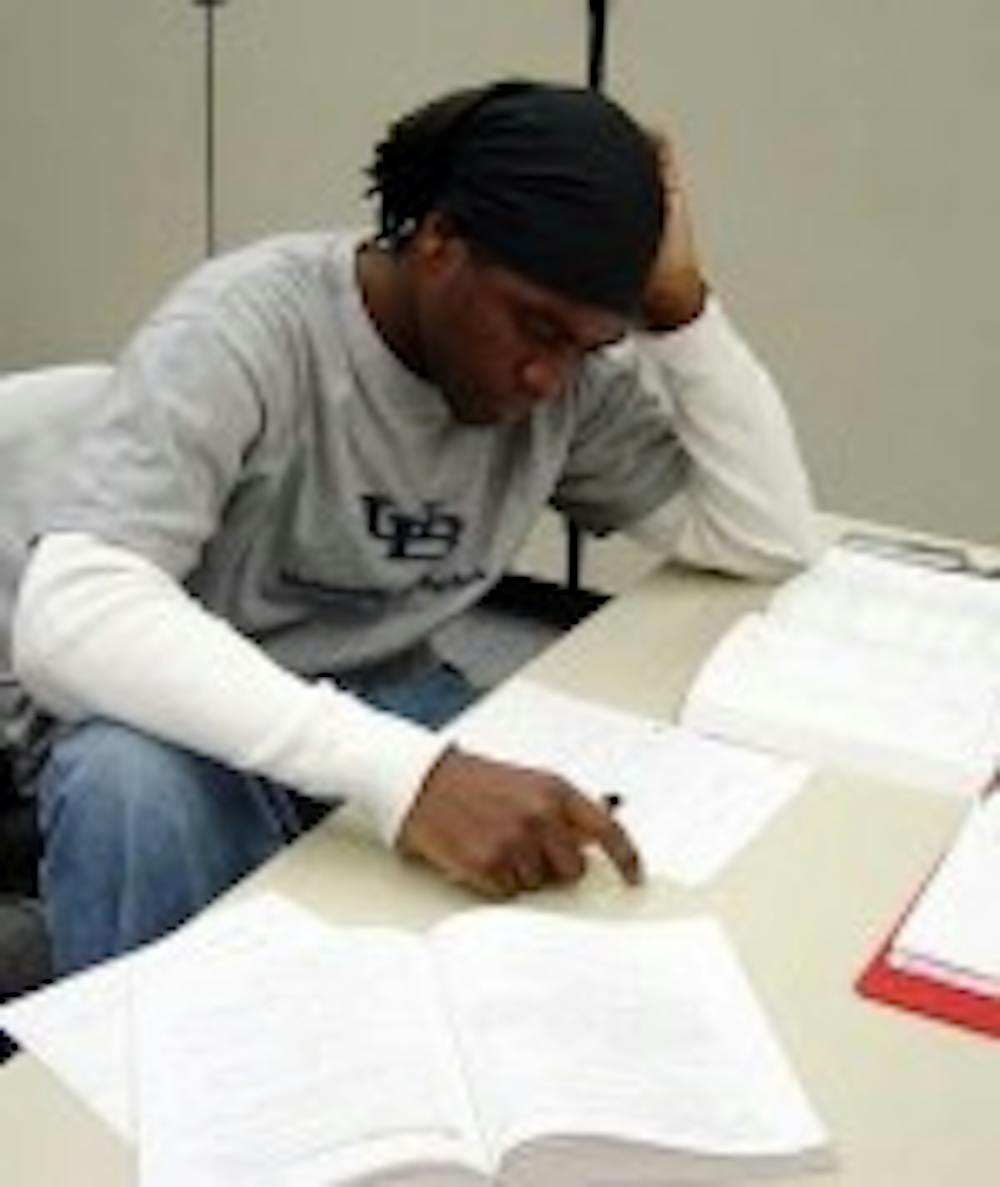While an overload of schoolwork can contribute to normal stress and anxiety, the seriousness of these problems among students is growing, as statistics show that psychological distress is on the rise for college students.
While some students are feeling the strain more acutely, others may not feel more stressed than in the past.
"I take my problems one step at a time," said Angela Ling, a junior double majoring in sociology and media studies. "You have to try not to drown yourself in them."
Those unable to cope with the pressure, however, are seeking assistance. According to a study conducted by the University of Kansas, there has been an increase in the number of students pursuing psychological help over the past few years.
Dr. David Gilles-Thomas, director of the UB Counseling Services Center, said the results of the study could also be applied to UB students.
"There has been an increase in both the number of students (seeking psychological help) and an increase in the number of pre-existing health conditions," he said.
Gilles-Thomas said approximately 1,000 to 1,500 students visit the Counseling Center per year on a weekly basis with traditional problems but at more serious levels.
"There have been more students with more serious suicidal thoughts and eating disorders," he said.
According to the National Mental Health Association Web site, suicidal occurrences have almost tripled since 1960, ranking suicide as the second leading cause of death among college students.
Veronica Lugris, assistant director of the Counseling Services Center, is hesitant to confirm that there are an increasing number of students coming to the Counseling Center, but she said there has not been a decrease in the number of students.
"If anything, it is consistent with the national trends and severity," she said.
The Counseling Services Center, located at 120 Richmond Quadrangle in the Ellicott Complex, is open to all UB students and provides students with individual, group, or couples counseling, all of which are completely confidential.
Gilles-Thomas estimates that about one-third of the patients go for group therapy, while two-thirds go for individual therapy.
Lugris said depression and anxiety are significant factors among UB students and that the possible increase in students seeking psychological assistance may be a result of our culture's acceptance and awareness of mental disorders.
"The stigma attached to counseling has been reduced and people have a greater awareness of mental health issues," Lugris said.
Gilles-Thomas said the increased availability of medicine and counseling services are both factors that affect the increase in the number of students visiting the Counseling Services Center.
Despite the growing number of students utilizing the center, some students are reluctant to try therapy.
Eric Lester, a sophomore communications major, said he is reluctant to reveal any of his inner conflicts to a stranger.
"I've never known about the Counseling Center here at UB," said Lester. "Even though I do know it is there now, I would not go there because I don't feel right about telling my problem to someone who doesn't know anything about me."
Other students, like Andrew Taylor, a junior media studies major, have adopted their own method for curing the normal amount of collegiate stress.
"I am usually able to sleep on a problem," he said.
For more information about the Counseling Services Center visit http://ub-counseling.buffalo.edu or call 645-2720.





